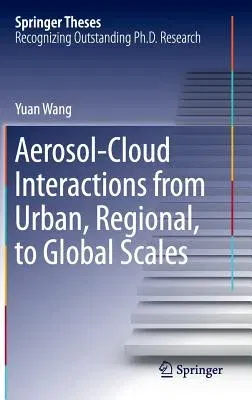The studies in this dissertation aim at advancing our scientific
understandings about physical processes involved in the
aerosol-cloud-precipitation interaction and quantitatively assessing the
impacts of aerosols on the cloud systems with diverse scales over the
globe on the basis of the observational data analysis and various
modeling studies. As recognized in the Fifth Assessment Report by the
Inter-government Panel on Climate Change, the magnitude of radiative
forcing by atmospheric aerosols is highly uncertain, representing the
largest uncertainty in projections of future climate by anthropogenic
activities. By using a newly implemented cloud microphysical scheme in
the cloud-resolving model, the thesis assesses aerosol-cloud interaction
for distinct weather systems, ranging from individual cumulus to
mesoscale convective systems. This thesis also introduces a novel
hierarchical modeling approach that solves a long outstanding mismatch
between simulations by regional weather models and global climate models
in the climate modeling community. More importantly, the thesis provides
key scientific solutions to several challenging questions in climate
science, including the global impacts of the Asian pollution. As
scientists wrestle with the complexities of climate change in response
to varied anthropogenic forcing, perhaps no problem is more challenging
than the understanding of the impacts of atmospheric aerosols from air
pollution on clouds and the global circulation.

